5 Sizzling Korean BBQ Sauces That Will Make Your Taste Buds Dance (And How to Choose the Best One!)
If you've ever tasted a perfectly grilled piece of marinated beef, glazed with that sweet-spicy umami punch of Korean BBQ sauce, then you know just how powerful these sauces can be. Whether you're hosting a backyard grill night or craving an authentic taste of Seoul at home, Korean BBQ sauces are your secret weapon.
In this article, we’ll explore the vibrant world of Korean BBQ sauces — their origins, flavor profiles, and the best ones on the market today. Plus, we’ve got practical tips, comparisons, and even a Buying Guide to help you pick the perfect sauce for your next grilling adventure!
Table of Contents
- Introduction: The Art of Korean BBQ Sauces
- A Taste of Tradition: Origins of Korean BBQ Sauces
- Flavor Profiles: What Makes Korean BBQ Sauce Unique?
- Top 5 Korean BBQ Sauces You Should Try Today
- Buying Guide: How to Choose the Perfect Korean BBQ Sauce
- How to Use Korean BBQ Sauce Like a Pro
- Conclusion: Fire Up Your Flavor Game
Introduction: The Art of Korean BBQ Sauces
Korean BBQ isn’t just about the meat — it’s a full sensory experience. From the sizzle of the grill to the aromatic steam rising off seared beef, every element plays a role. But perhaps none are as transformative as the sauce.
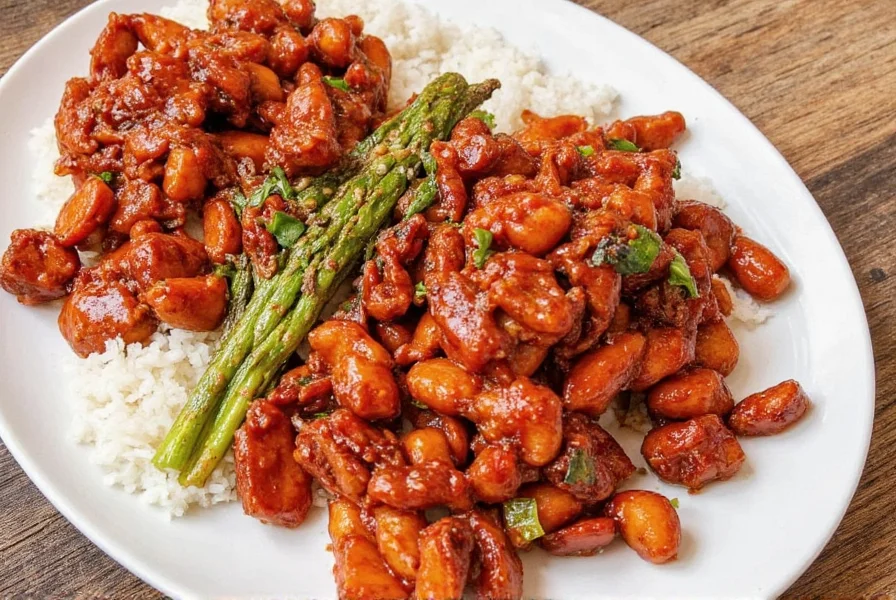
Korean BBQ sauce is more than a condiment; it's a marinade, glaze, and dipping sauce all in one. With its bold flavors and balanced sweetness, spice, and umami, it elevates any dish from ordinary to extraordinary. Whether you’re using it to baste ribs or slather it over grilled chicken, knowing your way around Korean BBQ sauce can truly revolutionize your cooking game.
A Taste of Tradition: Origins of Korean BBQ Sauces
Korean BBQ, known locally as “Gogigui,” has roots dating back centuries. Originally enjoyed by nobility and royalty, it became popular across all social classes thanks to industrialization and modern meat production techniques.

The sauce itself evolved alongside the practice of grilling meat. Traditional marinades included ingredients like soy sauce, garlic, sesame oil, sugar, and fermented pastes like gochujang (Korean chili paste). Over time, these recipes adapted to local palates and regional variations emerged — some sweeter, some spicier, and others more savory.
Today, Korean BBQ sauce is globally beloved, appearing not only in Korean restaurants but also in grocery stores, food trucks, and home kitchens around the world.
Flavor Profiles: What Makes Korean BBQ Sauce Unique?
Korean BBQ sauce is a masterclass in balancing contrasting flavors. Let’s break down the key elements that define this sauce:
- Sweetness: Usually derived from brown sugar, honey, or fruit-based syrups.
- Spice: Gochujang or red pepper flakes add a signature kick.
- Umami: Soy sauce, fish sauce, or miso provide depth and richness.
- Aromatics: Garlic, ginger, and sesame oil enhance fragrance and complexity.
- Thickness: Most Korean BBQ sauces have a syrupy texture, perfect for glazing meats.
| Flavor Component | Common Ingredients | Function |
|---|---|---|
| Sweetness | Brown sugar, honey, pineapple juice | Softens spice, balances saltiness |
| Spice | Gochujang, gochugaru (red pepper powder), chili paste | Adds heat and complexity |
| Umami | Soy sauce, fish sauce, sesame oil | Deepens flavor and enhances meatiness |
| Aromatics | Garlic, ginger, green onions | Boosts fragrance and layers of flavor |
| Texture | Thickening agents (cornstarch, reduced liquids) | Coats meat evenly, creates glossy finish |
Top 5 Korean BBQ Sauces You Should Try Today
We’ve rounded up five top-performing Korean BBQ sauces that bring something special to the table. Each one has been selected based on flavor profile, versatility, availability, and customer reviews.
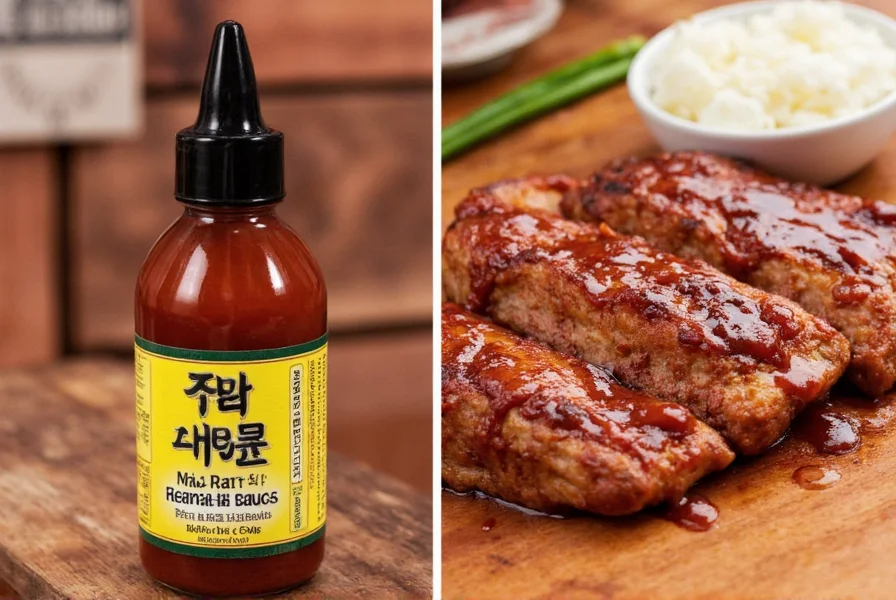
-
1. Cho Dang Tofu Original Gogitjung Sauce
This sauce from the famous Cho Dang Tofu chain is rich, savory, and slightly spicy. Ideal for marinating beef or drizzling over tofu stir-fries.

-
2. CJ Honey BBQ Sauce
Super sweet and sticky, this sauce works great for pork or chicken. It caramelizes beautifully on the grill.

-
3. Chung Jung One Spicy Gochujang BBQ Sauce
Packed with heat from real gochujang, this one’s for spice lovers. Perfect for adding fire to grilled veggies or bulgogi beef.

-
4. Bibigo Sweet & Spicy Korean BBQ Sauce
A crowd-pleaser with a perfect balance of sweet and spicy. Great for marinades, burgers, or even pizza!

-
5. Ottogi Pureun Barbecue Bulgogi Sauce
Made without artificial additives, this clean-label option is ideal for health-conscious grillers. Mild, earthy, and subtly sweet.

Buying Guide: How to Choose the Perfect Korean BBQ Sauce
Choosing the right Korean BBQ sauce depends on your personal preferences and intended use. Here's a handy guide to help you navigate the options:
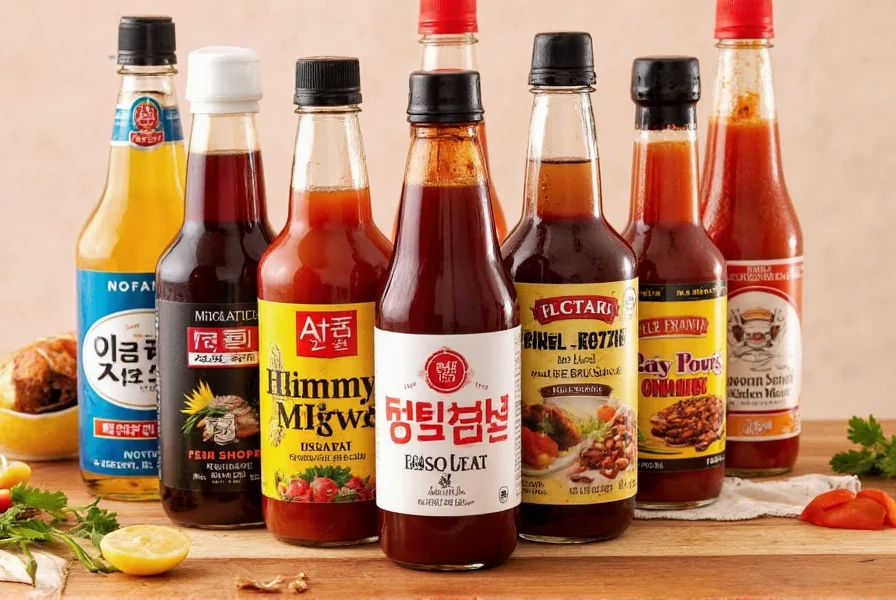
1. Know Your Flavor Preferences
- Sweet Lovers: Look for terms like “Honey,” “Sweet,” or “Pineapple” in the name.
- Heat Seekers: Go for labels with “Spicy,” “Gochujang,” or “Red Pepper.”
- Health-Conscious Grills: Check for “No Preservatives,” “Organic,” or “Low Sodium” labels.
2. Think About the Meat You’ll Be Using
- Beef: Pairs well with bold, complex sauces like traditional bulgogi marinades.
- Pork: Works best with sweeter, stickier sauces that caramelize nicely.
- Chicken: Mild or fruity sauces tend to complement chicken better than overly spicy ones.
- Veggies or Tofu: Spicy, umami-rich sauces bring life to plant-based proteins.
3. Consider the Occasion
- Family Dinner: Pick a milder, sweeter version so everyone can enjoy it.
- BBQ Party: Go for bold, smoky, or spicy varieties to impress guests.
- Quick Weeknight Meal: Choose pre-marinated packs or sauces that don’t require long soaking times.
4. Read the Ingredient List
- Look for whole ingredients like garlic, sesame oil, and soy sauce.
- Avoid excessive preservatives or artificial colors if possible.
- Check for gluten-free options if needed.
How to Use Korean BBQ Sauce Like a Pro
You don’t need a tabletop grill to enjoy Korean BBQ sauce. Here are some creative ways to incorporate it into your meals:
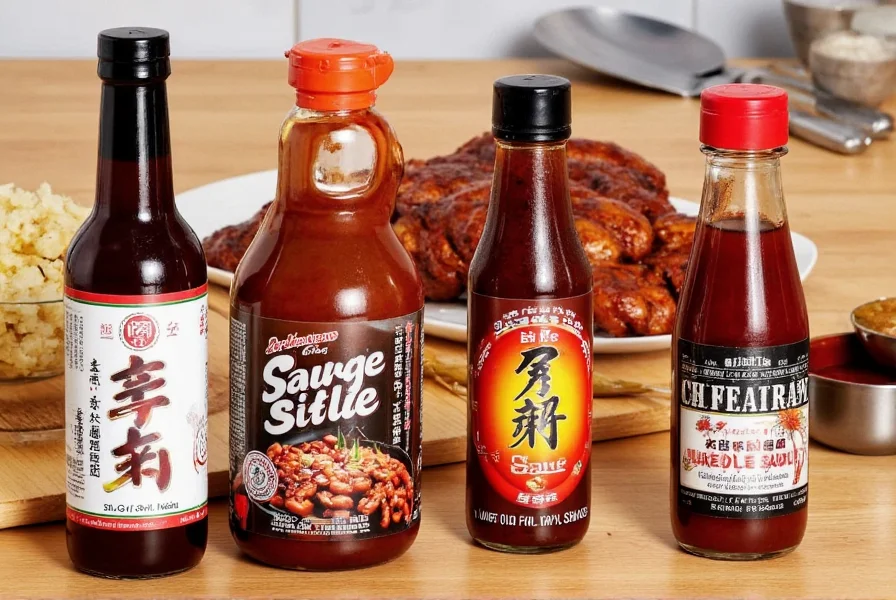
- As a Marinade: Toss chicken thighs or skirt steak in sauce and let sit for at least 30 minutes before grilling.
- As a Glaze: Brush onto grilled vegetables or shrimp during the last few minutes of cooking.
- In Stir-Fries: Add a splash to vegetable or noodle stir-fries for instant flavor.
- On Sandwiches: Slather on burgers or wraps for a fusion twist.
- With Dips: Mix with mayo or Greek yogurt to create a creamy dip for fries or wings.
Conclusion: Fire Up Your Flavor Game
Korean BBQ sauce is more than just a condiment — it’s a culinary tradition wrapped in a bottle. Whether you’re grilling outdoors or whipping up a quick weeknight dinner, the right sauce can transform your meal into something unforgettable.
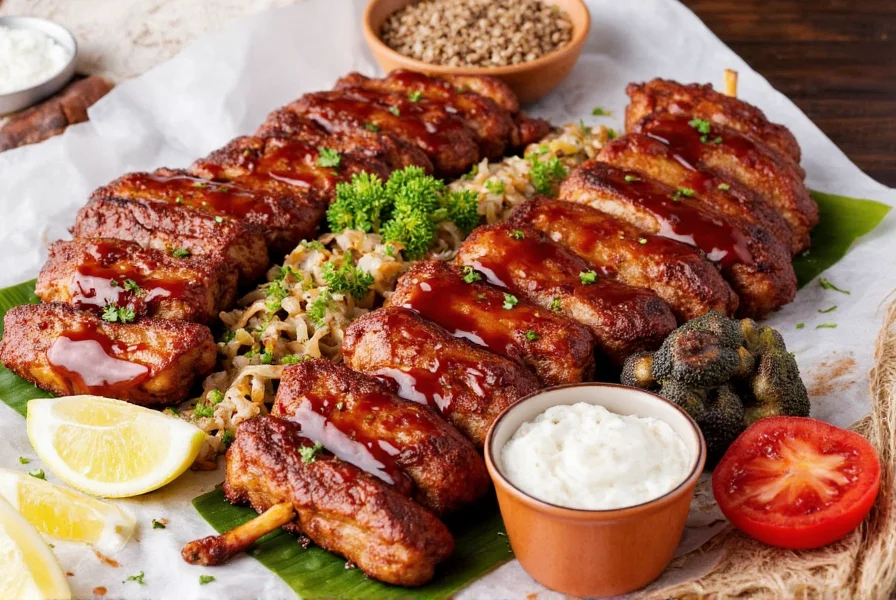
From choosing the perfect blend of sweet and spicy to experimenting with new recipes, there’s always room to grow your love for Korean flavors. So grab your favorite sauce, fire up the grill, and let your inner chef shine!
Happy grilling, and may your meals always be saucy and satisfying!











 浙公网安备
33010002000092号
浙公网安备
33010002000092号 浙B2-20120091-4
浙B2-20120091-4